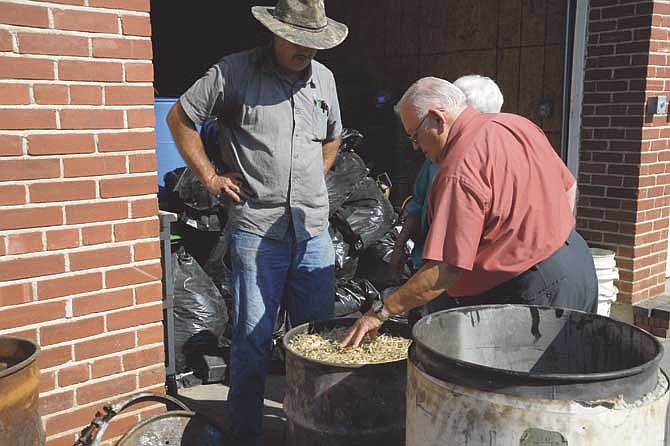Research that could have benefits from improved crop productivity to reduced environmental impacts has also made a positive difference in the life of a local professor.
Three years ago, local do-gooder Jack Ryan shared his interest in biochar with Lincoln University Professor Raymond Bayan, who holds doctorate degrees in soil science and geological science with an emphasis in coal.
"Biochar's effect is pretty amazing especially with the soil in Mid-Missouri," Bayan said.
As a scientist, Bayan said he was familiar with how charcoal was made. But he had heard little of biochar.
The fertile soil from biochar used as an amendment 2,000 years ago by the indigenous Amazon tribes is an example of the long-lasting potential.
Bayan's constructive skepticism faded quickly as he looked into the concept.
"Now, Lincoln University is one of the centers of biochar research," he said.
And Bayan serves on the International BioChar Initiative advisory board.
"This has made my work more worthwhile for me, to see all the dimensions of this," Bayan said. "Biochar has given me a means to connect with the community I live in."
He works with Ryan through the recently organized Project NEEED (Nutrition, Energy, Environment and Economic Development).
In addition to his research, Bayan has served the NEEED initiative as the web adviser. The group hopes through the Internet to educate the public.
The group of about 50 interested people brings a diversity of strengths and knowledge to the NEEED effort. More community-minded individuals and gardeners are invited to join.
NEEED will elect permanent officers at its meeting at 7 p.m. Thursday at the Unitarian Universalist Fellowship, 1021 Northeast Drive.
They are working to secure a large lot for gardening with biochar in the spring and develop relationships with local agencies which could benefit from future produce.
A few Central Missouri Master Gardeners have volunteered to develop the Heart of Missouri Gardens component.
"Of course, most scientists are concerned about this issue," Bayan said.
Bayan's research clearly shows local soil mixed with about 3 percent biochar significantly increases soil quality, fertility and yield.
That also means fewer fertilizers would be needed on crops and directly fewer chemicals might seep into waterways, too.
"We want to share as much as we can," Bayan said.
Recently, Bayan has delivered presentations on his research to several universities, including one in Russia.
"This is a very exciting area of research now," Bayan said. "We need investment in the technology and production to introduce it to the market."
Bayan helped formulate the international initiative's standards for producers, published this summer, because the industry is not yet regulated.
In addition to the improved crop quality, the developing biochar industry has open doors for commercial ventures.
"Missouri is ideally positioned with rural and urban sources," Bayan said.
If biochar had not captured his attention, Bayan said he likely would still be looking at fossil fuel extraction and coal mines. Much of his work builds upon that started by Cornell University Professor Johannes Lehmann.
Bayan said he spends long days concentrating on this research.
"There's so much to do with biochar," he said. "I feel like I'm doing something good - for plant growth, entrepreneurship, jobs, horticulture, the environment.
"It has been amazing."
As research continues, the next step in the biochar project is entrepreneurship and job creation.
"I hope Mid-Missouri becomes the center of biochar research and production," Bayan said. "This is what our country is all about - innovation, new ideas."

